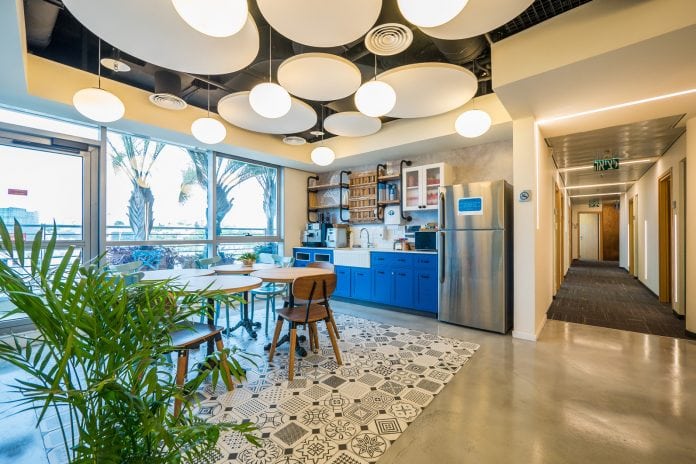
Many work environments aren’t that good for maintaining a healthy lifestyle. Employees are often tempted by variety of treats in the pantry room and confined to their desk for hours. Combine the unlimited access to unhealthy food with the long periods of sitting and you have the recipe for weight gain, heart disease and other negative side effects that wreak havoc on your health.
Don’t despair if your office hasn’t jumped on the wellness bandwagon yet. Instead of accepting your fate, you can take your own actions to take control of your health and wellness. Follow these guidelines to customize your own office routine and learn how to better manage a healthy lifestyle at work.
Set a Reminder to Move
It’s important to remember to get up and move consistently throughout the day. Setting your daily goal for 10,000 steps can help lower your risk of heart disease and help you maintain a healthy weight. Furthermore, walking for a few minutes every hour will make you feel better too. Stepping away from your desk can help you clear your head and become even more focused once you return to work.
By using a fitness tracker, or even setting a reminder on your phone or computer, you can get a nudge every hour to stretch your legs and reset your mind. To get more steps in, consider taking the long route instead of looking for a shortcut, whether it’s to the bathroom or to your car. Every step counts when it comes to taking better control of your health.
Avoid the Break Room
Office break rooms are notorious for hosting an unhealthy supply of snacks. Whether it’s the vending machine full of chips, cookies and other food that offers little nutritional value or the selection of homemade goodies that your co-workers regularly bring into the office in a good-hearted attempt to share, there’s always temptation to stray off your diet.
Avoid the pull of the break room by packing your own healthy options and keeping them at your desk. Fruit, veggies with hummus, nuts and yogurt are all good snack choices while at work as they give you the energy you need to get through the day without weighing you down. By keeping these healthy options close by, you can also keep the break room treats out of sight and out of mind.
Pack Your Own Lunch
It’s common knowledge that restaurants often fail to have your best health interest in mind. A 2012 study found that 96 percent of restaurant meals contain more salt, fat and calories than recommended for a meal. Obviously, the gigantic portions are way more than what you need at a meal to sustain yourself but it can be difficult to stop eating when there’s more delicious food in front you.
Instead of going out to eat, carefully pack your own lunch at home and focus on healthy options in appropriate serving sizes. For example, choose a small piece of fruit about the size of a tennis ball, one cup of veggies and a deck of cards size piece of protein. For pasta or rice, stick to ½ cup servings and, if you’re making a sandwich, try and avoid white bread and using mayonnaise.
Drink Lots of Water and Less Caffeine
While caffeinated beverages may give you an extra energy boost, they’re also often full of excessive calories, fat and sugar. If you feel like you need caffeine to get your morning started, choose a simple straight coffee or black tea and skip the sweet additions. Plus, by avoiding the break room to constantly refill your cup, you’ll also skip the temptation of the aforementioned goodies.
Instead of consuming cup after cup of coffee, switch to water after you brush off the sleepiness. Water has no calories and is essential to staying healthy. It’s recommended that people drink 64 ounces of water each day (that’s about 1.9 liters), but some of that water is absorbed through high water content foods, like fruits and veggies. You can make an effort to stay hydrated throughout the day by keeping a water bottle at your desk and making frequent trips to the office water cooler. As an added bonus, you’ll find that you’re less likely to want to snack when you have water in your stomach. It helps trick your body into feeling full.
Make the First Move
On the plus side, many workplaces are beginning to recognize these risk factors and are changing their company culture by encouraging healthier lifestyles and offering wellness portals. These programs keep track of employees’ health risks, provide solutions to common problems and motivate people to make healthy choices. Perhaps your workplace offers an incentive to get active by giving a reward for reaching a daily step goal or creates teams to challenge and motivate each other to get in better shape.
- Read more: Staying Healthy in a Big City
You can improve your workplace diet and health by following these simple steps. If you want to further your fitness goals, encourage your office to adopt a wellness program to better keep track of the health of the individual employee as well as the overall health of the office.




































